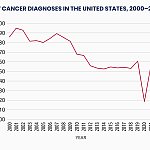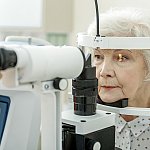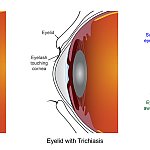
According to Cancer Research UK, half of all those diagnosed with any type of cancer in Wales and England will survive for at least 10 years after diagnosis, and the proportion is much higher for some of the more common cancers, based on data from 2010-2011.
Based on data from 2013-2017, more than three quarters of those with a breast or a prostate cancer diagnosis in England will be alive 10 years later.
Key to successful treatment is early diagnosis, before the cancer has a chance to
Now, scientists from the University of Cambridge, United Kingdom, have discovered that aspirin, a cheap, widely available painkiller, could prevent some types of cancer from spreading, and how it might do this.
The study, published in
Nilesh Vora, MD, a board-certified hematologist and medical oncologist and medical director of the MemorialCare Todd Cancer Institute at Long Beach Medical Center in Long Beach, CA, not involved in the study, told Medical News Today how important this study is:
“It generates a valid hypothesis on how to prevent cancer recurrence and spread, using a very easy to provide intervention for patients. The key part of this article is: Aspirin prevents cancers from spreading by decreasing TXA2 and releasing T cells from suppression.”
There have been huge advances in the treatment of early-stage cancers, but there is still a risk of recurrence elsewhere in the body if cancer cells have migrated from the site of the original tumor.
Inside the microenvironment of the original tumor, the immune system is suppressed so is less able to kill cancer cells. However, once these lone cancer cells migrate, the immune system can target them.
Rahul Roychoudhuri, PhD, lead author of the study, and professor of cancer immunology at the University of Cambridge, told MNT that:
“When cancer first spreads there’s a unique therapeutic window of opportunity when cancer cells are particularly vulnerable to immune attack. We hope that therapies that target this window of vulnerability will have tremendous scope in preventing recurrence in patients with early cancer at risk of recurrence.”
The researchers had previously found 15 genes in mice that had an effect on cancer metastasis. They found that mice lacking a gene which produces a protein called ARHGEF1 had less metastasis of some primary cancers in the lungs and liver. From this, they worked out that ARHGEF1 suppresses T cells that kill metastatic cells.
They then discovered that this gene is switched on when cells are exposed to the clotting factor TXA2.
Aspirin inhibits the production of TXA2 by platelets, which is why people sometimes take it at low doses to reduce the risk of blood clots, heart attacks and strokes — although
In the current study, looking at the mouse model of melanoma — an aggressive form of skin cancer — the researchers found that mice which received aspirin developed fewer metastases than control mice. The aspirin released their T cells from suppression by TXA2, enabling them to kill cancer cells.
“It was a eureka moment when we found TXA2 was the molecular signal that activates this suppressive effect on T cells,“ said Jie Yang, PhD, one of the study co-authors, based at the University of Cambridge, in a press release.
“Before this,“ Yang noted, “we had not been aware of the implication of our findings in understanding the anti-metastatic activity of aspirin. It was an entirely unexpected finding which sent us down quite a different path of enquiry than we had anticipated.”
Yang emphazied the potential of the research team’s findings, noting that “aspirin, or other drugs that could target this pathway, have the potential to be less expensive than antibody-based therapies, and therefore more accessible globally.”
However, the researchers do caution that aspirin can have side effects and may not be suitable for everyone. Commonly, aspirin can cause stomach or gut irritation, nausea, and indigestion.
Other side effects that are less common include worsening asthma symptoms, vomiting, stomach inflammation or bleeding, and bruising. Rarely, and particularly in those taking a daily dose, it may cause bleeding in the brain, kidney failure or haemorrhagic stroke.
Anton Bilchik, MD, PhD, surgical oncologist, Chief of Medicine and Director of the Gastrointestinal and Hepatobiliary Program at Providence Saint John’s Cancer Institute in Santa Monica, CA, not involved in this research welcomed the findings, but told MNT that they must first be validated in clinical trials with human participants:
“Clearly clinical trials need to be done to validate these findings. Both aspirin alone in patients who have earlier cancers, and therefore not candidates for immunotherapy or chemotherapy, and aspirin as an adjunct to these therapies in more advanced cancers need to be evaluated.”
The good news is clinical trials in people are now under way. The researchers will be collaborating with Ruth Langley, MD, professor of oncology and clinical trials in the MRC Clinical Trials Unit at University College London, who is leading the Add-Aspirin clinical trial, to find out if aspirin can stop or delay the return of early stage cancers.
Langley, who was not involved in the current study, advised that people should start taking aspirin only on doctors’ advice.
“In a small proportion of people, aspirin can cause serious side-effects, including bleeding or stomach ulcers. Therefore, it is important to understand which people with cancer are likely to benefit and always talk to your doctor before starting aspirin,” she emphasized.





